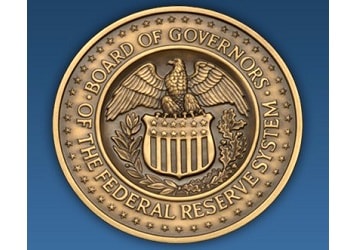
The Federal Reserve raised interest rates by a quarter of a percentage point on December 13, as anticipated, but left its rate outlook for the coming years unchanged even as policymakers projected a short-term acceleration in US economic growth.
Having raised its benchmark overnight lending rate three times this year, the Fed projected three more hikes in each of 2018 and 2019 before a long-run level of 2.8% is reached. That is unchanged from the last round of forecasts in September.
Gross domestic product is expected to grow 2.5% in 2018, up from the 2.1% forecast in September, while the unemployment rate is seen falling to 3.9% next year, compared to 4.1% in the last set of projections.
But inflation is projected to remain shy of the Fed's 2% goal for another year, with weakness on that front remaining enough of a concern that policymakers saw no reason to accelerate the expected pace of rate increases.
Policymakers do see the federal funds rate rising to 3.1% in 2020, slightly above the 2.8% "neutral" rate they expect to maintain in the long run. That indicates possible concerns about a rise in inflation pressures over time.
As it stands, inflation is expected to remain below the Fed's target in the near term and is being monitored "closely" by policymakers.
The Fed also said that, as of January, it would raise the amount of Treasury bonds and mortgage-backed securities that it would not reinvest on a monthly basis to $12 billion and $8 billion, respectively.
That is consistent with its balance sheet reduction plan.